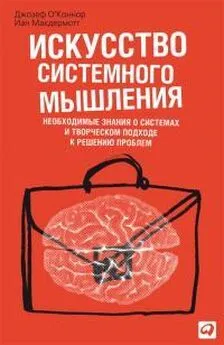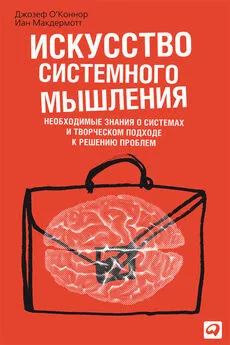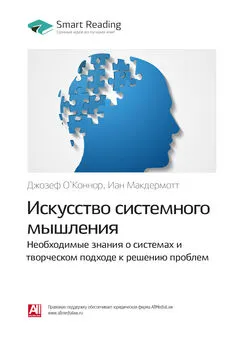Джозеф Халлинан - Почему мы ошибаемся? [Ловушки мышления в действии] [litres]
- Название:Почему мы ошибаемся? [Ловушки мышления в действии] [litres]
- Автор:
- Жанр:
- Издательство:Литагент МИФ без БК
- Год:2017
- Город:Москва
- ISBN:978-5-00100-787-6
- Рейтинг:
- Избранное:Добавить в избранное
-
Отзывы:
-
Ваша оценка:
Джозеф Халлинан - Почему мы ошибаемся? [Ловушки мышления в действии] [litres] краткое содержание
На русском языке публикуется впервые.
Почему мы ошибаемся? [Ловушки мышления в действии] [litres] - читать онлайн бесплатно ознакомительный отрывок
Интервал:
Закладка:
{15}
Библиография
Adams R. J., and K. Anders Ericsson, 1992, Introduction to Cognitive Processes of Expert Pilots, U.S. Department of Transportation, Federal Aviation Administration, Report No. DOT/FAA/RD-92/12.
Agence France Press, 2008, German Schoolboy, 13, Corrects NASA’s Asteroid Figures: Paper, April 15.
Ahlers M. M., 2007, Air Controller Fatigue Contributed to 4 Mishaps, CNN.com, April 11.
Air Safety Week, 2005, Despite Headway, CFIT Remains Persistent, Deadly Threat, 19 (2), Jan. 10.
Akst D., 2001, Read the Instructions, Industry Standard, June 11.
Alexander A. L., Thomas E. Nygren, and Michael A. Vidulich, 2000, Examining the Relationship Between Mental Workload and Situation Awareness in a Simulated Air Combat Task, Air Force Research Laboratory, Wright-Patterson Air Force Base, Dayton, Ohio.
Anderson J., and Vikas Bajaj, 2008, Merrill Tries to Temper the Pollyannas in Its Ranks, New York Times, May 15, p. C1.
Angier N., 2008, Mirrors Don’t Lie, Mislead? Oh, Yes, New York Times, July 22, p. D1.
Ariely D. and Klaus Wertenbroch, 2002, Procrastination, Deadlines, and Performance: Self-Control by Precommitment, Psychological Science 13 (3), pp. 219–224.
Arkes H., 1991, Costs and Benefits of Judgment Errors: Implications for Debiasing, Psychological Bulletin 110 (3), pp. 486–98.
Arkes H. R., Robyn M. Dawes, and Caryn Christensen, 1986, Factors Influencing the Use of a Decision Rule in a Probabilistic Task, Organizational Behavior and Human Decision Making 37, pp. 93–110.
Arkes H. R., et al. 1981, Hindsight Bias Among Physicians Weighing the Likelihood of a Disease, Journal of Applied Psychology 66, pp. 252–254.
Armstrong D., 2007, Your Doctor’s Business Ties Are Your Business, Too, Wall Street Journal, Nov. 20, p. D1.
Associated Press, 2005, Body Hanging from Tree Mistaken for Halloween Decoration, Oct. 28.
Associated Press, 2007a, FDA Says Pills Can Cause «Sleep-Driving», March 14.
Associated Press, 2007b, Subtle Software Changes May Narrow Gender Gap, Chicago Tribune, Sept. 24, sec. 3, p. 5.
Associated Press, 2008a, 5th-Grader Finds Mistake at Smithsonian, April 3.
Associated Press, 2008b, Fox: Jackson Used N-Word in Off-Air Remarks, July 16.
Associated Press, 2008c., Fatal Medication Errors at Home Rise Sharply, July 29.
Atchley P., and J. Dressel, 2004, Conversation Limits the Functional Field of View, Human Factor 46 (4), pp. 664–673.
Ausubel L. M., 1999, Adverse Selection in the Credit Card Market, Working paper, University of Maryland.
Bahrick H. P., Phyllis O. Bahrick, and Roy P. Wittlinger, 1975, Fifty Years of Memory for Names and Faces: A Cross-Sectional Approach, Journal of Experimental Psychology: General 104 (1), pp. 54–75.
Bahrick H. P., Lynda K. Hall, and Stephanie A. Berger, 1996, Accuracy and Distortion in Memory for High School Grades, Psychological Science 7, pp. 265–271.
Bake S. L., and I. Kirsch, 1991, Cognitive Mediators of Pain Perception and Tolerance, Journal of Personality and Social Psychology 61, pp. 504–10.
Ballew C. C., II, and Alexander Todorov, 2007, Predicting Political Elections from Rapid and Unreflective Face Judgments, Proceedings of the National Academy of Sciences 104 (46), pp. 17948–17953.
Barber B. M., and Terrance Odean, 2000, Trading Is Hazardous to Your Wealth: The Common Stock Investment Performance of Individual Investors, Journal of Finance 55 (2), pp. 773–806.
Barber B. M., and Terrance Odean, 2001. Boys Will Be Boys: Gender, Overconfidence, and Common Stock Investment. Quarterly Journal of Economics, Feb., pp. 261–92.
Barber B. M., and Terrance Odean, 2008, All That Glitters: The Effect of Attention and News on the Buying Behavior of Individual and Institutional Investors, Review of Financial Studies 21, pp. 785–818.
Barger L. K., et al., 2006, Impact of Extended-Duration Shifts on Medical Errors, Adverse Events, and Attentional Errors, Public Library of Science – Medicine, available online.
Barlyn S., 2007, Cranky Consumer: Waiting for Rebate Checks to Arrive, Wall Street Journal, May 10, p. D2.
Barnes, Brooks, and Andrea Petersen, 2001, As Priorities Change, Some Question Why They Eschew the Fat, Wall Street Journal, Oct. 5, p. 1.
Barras C., 2008, «Sexy» Voice Gives Fertile Women Away, New Scientist, May 1, p. 14.
Bartlett F. C. 1964. Remembering: A Study in Experimental and Social Psychology, Cambridge, U.K.: Cambridge University Press. (1st ed., 1932.)
Bateman D., 2008, personal correspondence.
Beach K. D., 1988, The Role of External Mnemonic Symbols in Acquiring an Occupation, In Practical Aspects of Memory: Current Research and Issues, Vol. 1: Memory in Everyday Life, edited by M. M.
Gruneberg P. E. Morris, and R. N. Sykes, Chichester, U.K.: Wiley.
Beck M., 2008, To Cut Risks of Sleeping Pills, Hide Car Keys, Unplug Phone, Wall Street Journal, May 6, p. D1.
Beckwith L. A., 2007a, Gender HCI Issues in End-User Programming. Ph. D. diss., Oregon State University.
Beckwith L. A., 2007b, author interview.
Begley S., 2005, Security’s Blind Spot, Wall Street Journal, Dec. 30, p. A11.
Belenky G., et al., 1994a, Subjective Fatigue of C-141 Aircrews During Operation Desert Storm, Human Factors 36 (2), pp. 339–349.
Belenky G., et al., 1994b, The Effects of Sleep Deprivation on Performance During Continuous Combat Operations, In Food Components to Enhance Performance, edited by B. Marriott Washington, D.C.: National Academy Press.
Berlin L., 2000, Hindsight Bias, American Journal of Roentgenology 175, pp. 597–601.
Bertrand M., 2007, author interview.
Bertrand M., Dean Karlan, Sendhil Mullainathan, Eldar Shafir, and Jonathan Zinman, 2006, Pricing Psychology: A Field Experiment in the Consumer Credit Market, Mimeo, University of Chicago.
Beyer S., 1998, Gender Differences in Self-Perception and Negative Recall Biases, Sex Roles 38 (1/2), pp. 103–133.
Biederman I., 1987, Recognition-by-Components: A Theory of Human Image Understanding, Psychological Review 94, pp. 115–147.
Bishop M.A., and J. D. Trout, 2002, 50 Years of Successful Predictive Modeling Should Be Enough: Lessons for Philosophy of Science, Philosophy of Science 69, pp. S197–S208.
Blackstone J., 2008, Bringing Back Bridge, CBS News, Feb. 16, available online at cbsnews.com.
Blass T., 2004, The Man Who Shocked the World: The Life and Legacy of Stanley Milgram, New York: Basic Books.
Boehm T., et al. 1997, Antiangiogenic Therapy of Experimental Cancer Does Not Induce Acquired Drug Resistance. Nature390, pp. 404–407.
Bonner S. E., S. Mark Young, and Reid Hastie, 1996, Financial Incentives and Performance in Laboratory Tasks: The Effects of Task Type and Incentive Scheme Type. Unpublished manuscript. University of Southern California Department of Accounting.
Boot W. R., et al., 2006, Detecting Transient Changes in Dynamic Displays: The More You Look, the Less You See, Human Factors 48 (4), pp. 759–773.
Bower G. H., 1981, Mood and Memory, American Psychologist 36, pp. 129–148.
Bower G. H., and M. H. Karlin, 1974, Depth of Processing Pictures of Faces and Recognition Memory, Journal of Experimental Psychology 103, pp. 751–757.
Boynton R. D., Brian F. Blake, and Joe N. Uhl, 1983, Retail Price Reporting Effects in Local Food Markets, American Journal of Agricultural Economics 65 (1), pp. 20–29.
Bransford J. D., and Marcia K. Johnson, 1972, Contextual Prerequisites for Understanding: Some Investigations of Comprehension and Recall, Journal of Verbal Learning and Verbal Behavior 11, pp. 717–26.
Brennen T., et al., 1990, Resolving Semantically Induced Tip-of-the-Tongue States for Proper Nouns, Memory & Cognition 18 (4), pp. 339–347.
Brouwer W. et al., 1991, Divided Attention in Experienced Young and Older Drivers: Lane Tracking and Visual Analysis in a Dynamic Driving Simulator, Human Factors 33 (5), pp. 573–582.
Brown A. S., 1991, A Review of the Tip-of-the-Tongue Experience, Psychological Bulletin 109 (2), pp. 204–223.
Brown A. S., 2007, author interview.
Brown A. S., et al., 2004, Generating and Remembering Passwords, Applied Cognitive Psychology 18, pp. 641–651.
Brown A. S., and Tamara A. Rahal, 1994, Hiding Valuables: A Questionnaire Study of Mnemonically Risky Behavior, Applied Cognitive Psychology 8, pp. 141–154.
Brown N. R., and Robert C. Sinclair, 1999, Estimating Number of Lifetime Sexual Partners: Men and Women Do It Differently, Journal of Sex Research 36 (3), pp. 292–297.
Brownlee S., 2007, Overtreated: Why Too Much Medicine Is Making Us Sicker and Poorer, New York: Bloomsbury USA.
Bruce V., and Andy Young, 1998, In the Eye of the Beholder: The Science of Face Perception, Oxford: Oxford University Press.
Burson K. A., 2007, Consumer-Product Skill Matching: The Effects of Difficulty on Relative Self-Assessment and Choice, Journal of Consumer Research 34, pp. 104–110.
Byrne C., 2000, Confused Vigilantes Attack Doctor’s Home, Chicago Sun-Times, Aug. 31, p. 34.
Byrne J., 2007, author interview.
Cain D. M., George Loewenstein, and Don A. Moore, 2005, The Dirt on Coming Clean: Perverse Effects of Disclosing Conflicts of Interest, Journal of Legal Studies 34, pp. 1–25.
Camerer C., 1998, Behavioral Economics and Nonrational Decision Making in Organizations, In Decision Making in Organizations, edited by J. Halpern and B. Sutton, Ithaca, N.Y.: Cornell University Press.
Camerer C., Linda Babcock, George Loewenstein, and Richard Thaler, 1997, Labor Supply of New York City Cabdrivers: One Day at a Time, Quarterly Journal of Economics 112, pp. 407–441.
Camerer C., and Robin Hogarth, 1999, The Effects of Financial Incentives in Experiments: A Review and Capital-Labor-Production Framework, Journal of Risk and Uncertainty 19, pp. 7–42.
Camerer C., and Eric J. Johnson, 1991, The Process-Performance Paradox in Expert Judgment: How Can Experts Know So Much and Predict So Badly? In Toward a General Theory of Expertise: Prospects and Limits, edited by K. Anders Ericsson and Jacqui Smith, Cambridge, U.K.: Cambridge University Press.
Camerer C., George Loewenstein, and Martin Weber, 1989, The Curse of Knowledge in Economic Settings: An Experimental Analysis, Journal of Political Economy 97 (5), pp. 1232–1254.
Camerer C., and Dan Lovallo, 1999, Overconfidence and Excess Entry: An Experimental Approach, American Economic Review 89 (1), pp. 306–18.
Campanelli J., 2006, I Forget My Password! With More and More Codes to Clutter Our Brains, It’s a Wonder We Don’t All Crash, Plain Dealer, Sept. 3, p. L1.
Caplan J., 2007, Cause of Death: Sloppy Doctors, Time, Jan. 15.
Carbaugh D. C., 2008, personal correspondence.
Cash J., 2005, Specialist’s Factual Report of Investigation, National Transportation Safety Board, Accident No. IAD05FA023, Oct. 18.
Chapman G., and Brian H. Bornstein, 1996, The More You Ask for, the More You Get: Anchoring in Personal Injury Verdicts, Applied Cognitive Psychology 10, pp. 519–540.
Chapman L. J., and Jean P. Chapman, 1967. Genesis of Popular but Erroneous Psychodiagnostic Observations, Journal of Abnormal Psychology 72 (3), pp. 193–204.
Charness N., 1991, Expertise in Chess: The Balance Between Knowledge and Search, In Toward a General Theory of Expertise: Prospects and Limits, edited by K. Anders Ericsson and Jacqui Smith, Cambridge, U.K.: Cambridge University Press.
Chase W. G., and K. Anders Ericsson, 1981, Skilled Memory, In Cognitive Skills and Their Acquisition, edited by John R. Anderson. Hillsdale N.J.: Lawrence Erlbaum Associates.
Читать дальшеИнтервал:
Закладка:
![Обложка книги Джозеф Халлинан - Почему мы ошибаемся? [Ловушки мышления в действии] [litres]](/books/1067113/dzhozef-hallinan-pochemu-my-oshibaemsya-lovushki-myshl.webp)
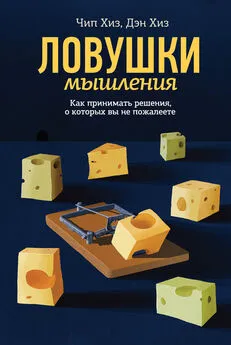
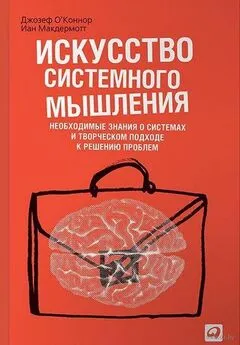
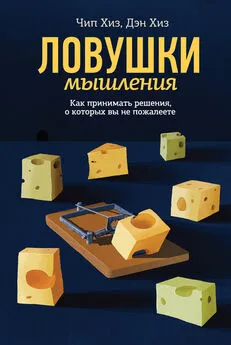
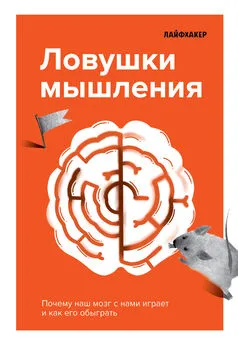
![Константин Муравьев - Перешагнуть пропасть: Клан. Союзник. Мир-ловушка [книги 5-7] [сборник litres]](/books/1075097/konstantin-muravev-pereshagnut-propast-klan-soyuznik-mir-lovushka-knigi-5-7-sbornik-litres.webp)
